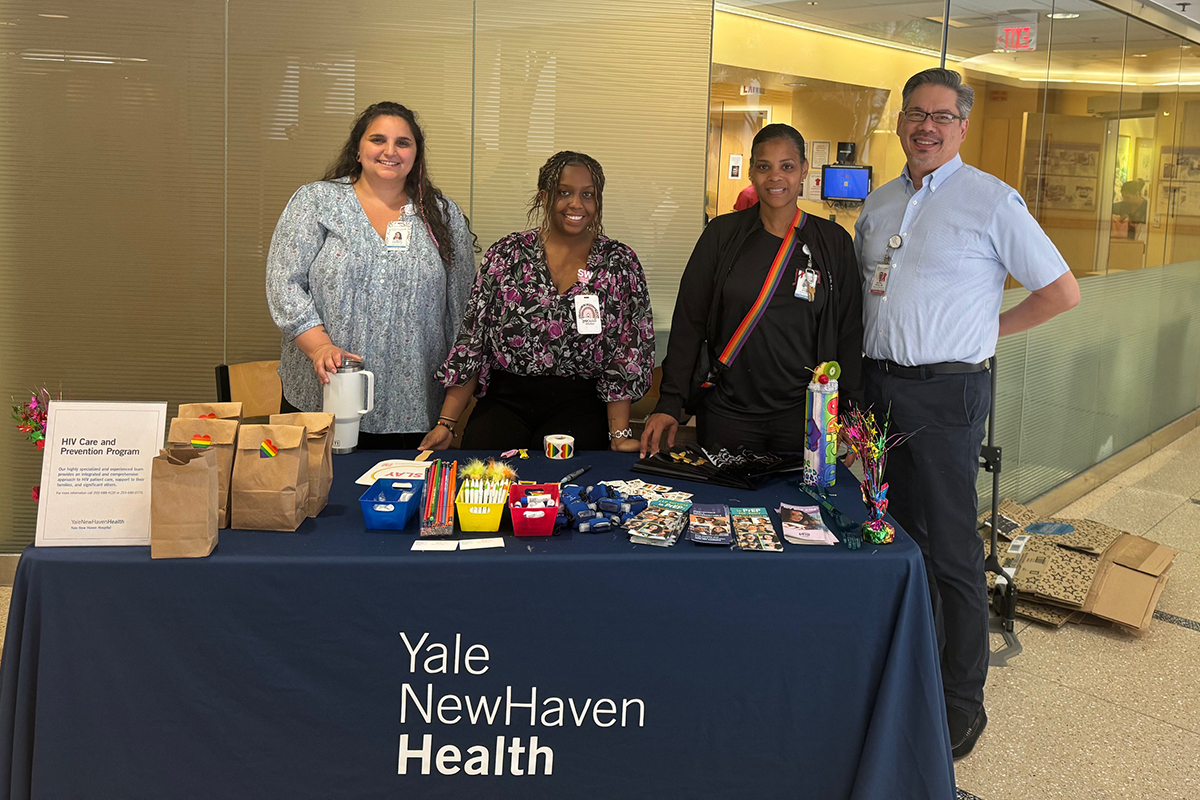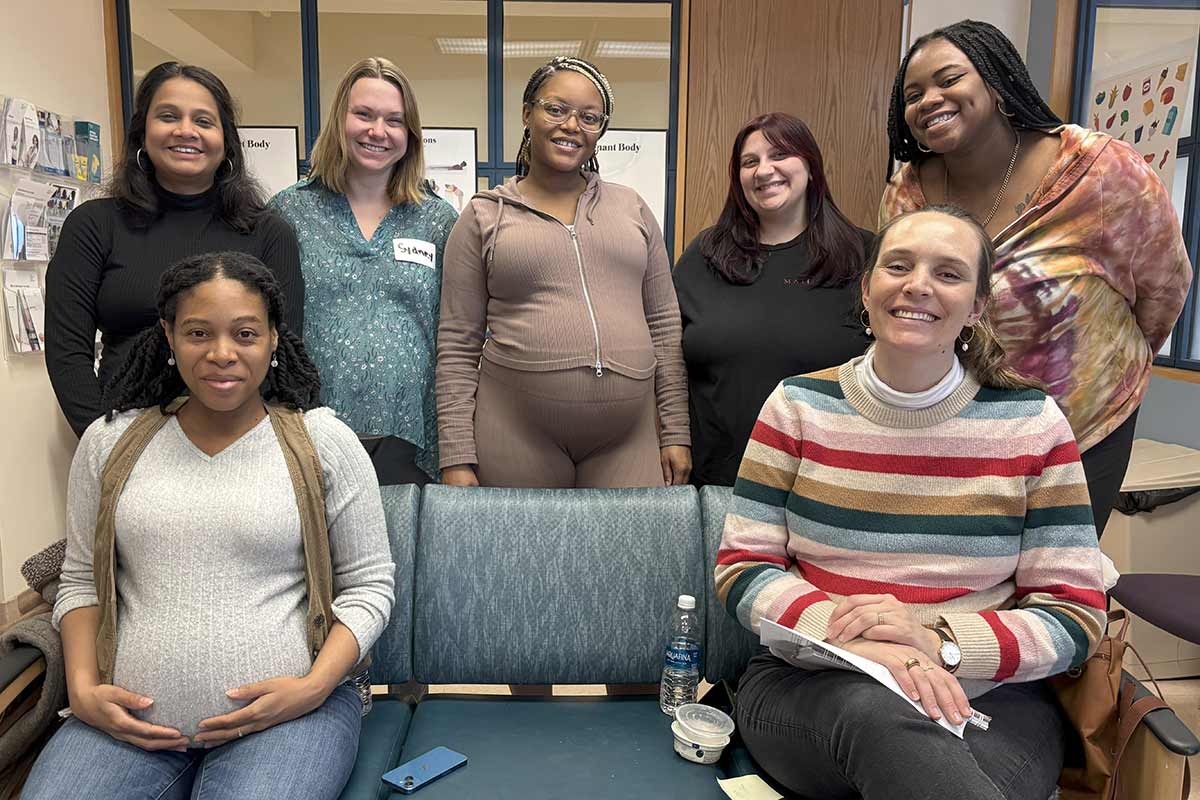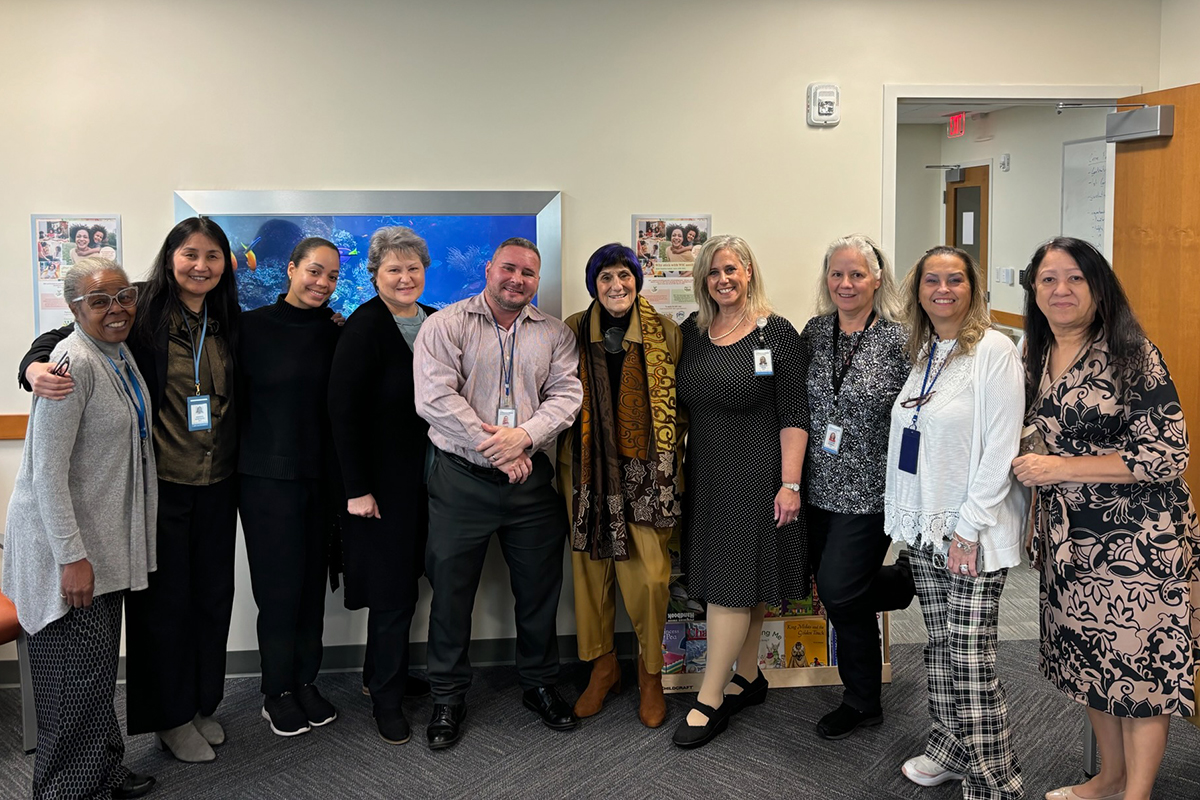
Members of the Hospital-based Intervention Program (HVIP) stand together for a safer, stronger community.
“I was just sitting and ordering food inside a restaurant and all of a sudden, I got shot in the arm,” said Pepe Vega, lead prevention outreach associate of the Hospital-based Violence Intervention Program (HVIP).
When it came to drugs and crime, Vega was no stranger to it. He bounced in and out of foster care and often found himself on the wrong side of the law, but deep down, he always believed life had more to offer.
“I grew up with passion wanting to do the right thing, but I was in the wrong environment,” added Vega.
Prior to working for Yale New Haven Health, Vega owned a sneaker store for more than ten years and it was in 2013, when his career finally aligned with his passion. He crossed paths with
James Dodington, MD, medical director of HVIP, who opened his eyes to the powerful impact they could have in supporting victims of violence.
“This is a groundbreaking program to support victims of violence who are seen in our hospital. We know these patients greatly benefit from services and connections to local resources,” said Dr. Dodington.
In 2019, Vega joined YNHHS, where he’s been dedicated to helping survivors ever since, offering firsthand advice as someone who landed in the wrong crowd as a young adult.
The help offered by the program not only caters to adults, but to youths as well. The process begins with an assessment to identify what essential resources the individual may be lacking – such as housing, food, education, or financial support. From there, they are connected with community partners equipped to meet those needs.
Many of the individuals referred to the program have experienced severe and traumatic events – such as gun violence, stabbings, sexual assault, human trafficking, or domestic violence. If the victim does not survive, their family members may be eligible to receive support. These cases typically come through the emergency department (ED).
“Some of those first meetings can be really intense depending on what type of victimization they have experienced,” said Erin Latham, lead victims services navigator. “There are some clients who are really frustrated and angry at the system and then there are some who are so defeated and they will cry the entire time you meet with them.”
While the program’s office is located on George Street, the team meets clients where they feel safest – whether that is at the ED bedside or another location of their choosing.
“Aside from helping the victims, one of the key factors of this program is reducing recidivism. We’re trying to get these people on the right track, get them what they need to regain or start a new healthy and safe lifestyle,” said Nick Aysseh, manager of the HVIP and Center for Injury and Violence Prevention. “We don’t just meet once, we do have 30-, 60-, and 90-day follow-ups to ensure their life is in order and they are getting the services and resources they need.”
Aysseh added many hospitals are unable to consistently support victims of violence due to limited resources or staffing. In contrast, YNHHS is deeply committed to this work, with dedicated hospital employees leading the effort to provide care and support for these individuals.
Some individuals choose not to accept help for deeply personal reasons – such as fear their abuser might find out, or discomfort with opening up about their trauma.
This is when Vega steps into the picture. Having survived gunshot wounds and overcome a turbulent past, he is able to connect with individuals on a personal level, offering understanding that comes from lived experience.
“You have those people who ask you questions like ‘what do you want? Why are you asking me?’ So, it’s important the HVIP program have a credible messenger because trust is big,” added Vega.
The program has been operating successfully since 2020 and has grown exponentially. All services are offered at no charge.




